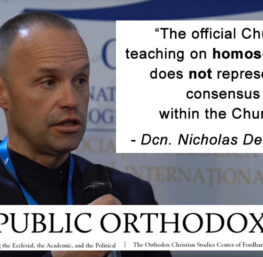 by Daren Jonescu –
by Daren Jonescu –
On the subject of public schools, some conservatives and libertarians are inclined to speak as though they cannot wait another moment to spring into action — and then act as though they need the hand of God to point the way ahead before they do what we all know in our hearts must be done. This is not meant as harsh criticism. These good people embody an innate human flaw defined for all time in one of our greatest archetypes: they are Hamlet.
At a moment as historically important as this one, two all-too-human dangers lie in wait for those who understand the seriousness of the situation. The first is that they should undermine their own cause with reckless outbursts and the resulting disarray. The second is that they should cocoon themselves against the clear imperative to act by lamenting the lack of a perfect plan.
It is this second danger that I wish to address here. The people I am talking about are men and women who know that generations of compulsory public schooling have laid waste to reason, morality, and responsible citizenship. They desire radical change — and yet something about the enormity of the situation has paralyzed them. They are practical Hamlets: they rail (correctly) against the usurpation of their family’s and society’s legitimate authority by an unjust, immoral, and destructive public education system — but then they rail against the heavens, or against their fellow conservatives and libertarians, for supposedly not proposing a feasible solution.
The truth is that education is one of the few areas of authoritarian encroachment where you can, for the moment at least, advance liberty and morality through your own action. There is no need to wait for legislators to act on your behalf. (That is putting the cart before the horse.) And there is no need to demand that people with public voices, billions of dollars, or political connections take the first step.
The first step is available to anyone who wishes to take it. Thousands have already taken it; one need only join them. What are you waiting for?
Hamlet, the eternal essence of the ratiocinative man trapped in a moment of practical urgency, always has a reason for inaction. All his reasons seem reasonable to him — indeed, they are reasonable — and yet they conspire against his soul’s moral imperative, functioning in his virtuous mind as excuses function in the minds of vicious men. Hamlet, an honest man, does not “rationalize” or “procrastinate”: rather, he clogs up his moral arteries with nuanced qualifications; he racks himself with second thoughts.
This, I believe, is where too many people stand today with respect to the warning presented to them, not by their father’s ghost, but by the ghost-like witness of their own children, or those of others — children whose souls and potential are daily being siphoned off by an education system designed to produce subjugated spirits, mere slogan-vessels, whose (carefully nurtured) dominant passions are born of greed, sloth, lust, and envy, which can easily be subdued and manipulated by the power elite’s petty material promises, entertainments, and demagoguery. Our Hamlets see this monster, and want to kill it, but they have become obsessed with the seeming intractability of the corrupt system, rather than focusing on practical actions they could take today that would squeeze off its blood supply. Their obsession with the political enormity of the corruption, combined with their impatience to unravel it, threatens to make them caustic skeptics precisely where positive engagement is most needed.
Some of us are dedicated to working out the most persuasive theoretical ammunition for the long battle to save future generations from state indoctrination. In reply to these efforts the “impatient” Hamlets declare, “This historical and theoretical mumbo-jumbo is all well and good, but when is someone going to come up with a practical plan?”
Hundreds of fellow citizens write in a thousand different forums about their successful experiences as homeschoolers. And yet Hamlet says, “But individual action is pointless — when are we going to get organized?” or “A parent would have to give up his or her job to teach the children full-time,” or “Some parents are not competent to teach their own children.”
Advocates and administrators of private schools — secular or religious — produce evidence and argument for the myriad advantages of rescuing children from the public system quickly, and the eminent feasibility of doing so. And yet Hamlet says, “It’s too expensive when we’re already paying taxes for public school,” or “There’s nothing we can do until politicians abolish the U.S. Department of Education.”
A collective plea is issued for reasserting parental control over children’s education, in the name of renewing a dying civilization. But Hamlet says, “It’s too late to save civilization now — it would take generations.”
Let us begin with this last point. “It’s too late to save civilization now — it would take generations.” This view, variations of which appear regularly on conservative websites and blogs, is self-contradictory. The claim that something would take a long time to achieve is itself an acknowledgment that it is indeed possible.
Of course it will take generations. Education is a slow process in an individual soul. As a societal shift, it is even slower because, at the outset, most people will not be involved in the revolution, and because even those who are will vary in competence and results. Are those who use this argument against immediate action on education imagining that a rejuvenated society will arise spontaneously from the coming economic and social collapse?
As things now stand, it is no exaggeration to hypothesize that the majority of people will enter the coming period of tumult ignorant of human nature and history, conscienceless, and lacking both practical skills and the independent character to acquire them. What kind of society is likely to emerge from such a population in a time of unrest and hardship?
No — the belief that collapse is inevitable is all the more reason to take what action you can against the spiritual degradations of public education right now, while there is still hope of starting someone’s life off on the path to self-reliance and moral integrity. There will be no quick fix for civilization. We are certainly looking at a multigenerational war. Few of us are likely to be on this earth when and if victory is declared — all the more reason to start the process without further delay.
We must take our cue here from the early progressives who started the ball rolling on compulsory public education several generations ago. Motivated by a twisted combination of power lust, crackpot historicism, and moral condescension, they took what steps they could in the midst of the vibrant, prosperous, free society that they hated. They are long dead now — and yet today, were they not burning, they would be enjoying the fruit of their cynical labors posthumously.
Men’s most momentous actions, as Hamlet would certainly agree, are often those that overreach the bounds of our mortality. In redefining education you will need to count on future citizens to complete the most far flung goals of your work. On the other hand, you have the power, through your actions today, to define the trajectory of motions that will extend beyond your life.
In the meantime, virtuous action is its own reward. You can, by helping to save even one child from the wasted years and the moral and intellectual corruption of public education, help to set your community on a trajectory of strong moral character, self-reliance, and resistance to government dependency, combined with an unleashing of the innate curiosity that allows children to develop talents and knowledge at remarkable rates, almost without assistance — unless the government is allowed to beat or hug them into submission first. Future generations will need all the virtue, intellectual dexterity, and historical perspective within their potential if they are to withstand the hard times ahead, and emerge as free men and women. Delayed action at this late date will have tragic consequences.
So act.
Remove your own children from public school now. If you are intending to have children in the future, begin planning for their private education immediately. How will you provide it? How will you pay for it?
Whether or not you have school age children yourself, encourage the reasonable parents among your relatives and friends to remove their children from public school. Make the case, rationally and thoroughly. Leave them to think about it, and then make the case again. Give them some good reading material to ponder, such as John Taylor Gatto’s Underground History of American Education. And as a show of good faith, offer to help educate their children.
If you belong to a church or synagogue with a rational clergyman and congregation, urge them to form a school together. If you know teachers who are working in a public system but are fed up with its failures and corrupt agendas, encourage them, cajole them, beg them, to join a private school venture — their consciences are already tugging them that way.
If you are planning to home school, seek out others who are doing the same. Exchange ideas, or teach one another’s children according to each parent’s strengths. If you are not engaged in homeschooling a child of your own, consider how you might contribute to the education of others’ kids. Grandparents: shake your adult children, and reclaim your historical role as patriarchs and matriarchs! The broader the market of available sources of learning, the more likely parents will be to remove their children from the government re-education centers — and the more affordable doing so will become. (This is also, by the way, the immediately practicable method of defunding public schools, which receive tax dollars based on student numbers.)
If you have skills or knowledge that might help to stir a new, energized generation of unfettered children to seek understanding and practical efficacy the way today’s shackled young souls seek computer game high scores and perverse music videos, then use them for the sake of your community’s future. Whether full-time or part-time, for profit or on a volunteer basis, offer to tutor young people in those areas where your abilities might fill a gap in a parent’s or school’s offerings.
Do you have a long-standing interest in European history, astronomy, bird-watching, or carpentry? Then offer to teach it to private students, individually or in groups. I recently realized, upon reflection, that of all the primary and secondary schooling I underwent, the only class I remember with unequivocal fondness was not a school offering at all. A man in my Catholic parish, the father of one of my classmates, had an interest in photography, and decided to start up a little “camera club” for kids from the church. We used cheap cameras, and only black and white film, because it was easier and less expensive to process. We learned how to take pictures and develop them. What a joy it was to stand in Mr. Deduca’s little basement darkroom, watching our “creations” arise from the photographic paper. If only a few of my “real” classes had been half as interesting!
And what about the other common considerations and over-considerations I mentioned, with which people talk themselves out of doing the obvious?
Will some parents and private schools do a worse job than others? Yes — but in a world of private education, there will always be available alternatives to a failing model, as opposed to the inescapable damage done to every child in the standardized, “one failure fits all” approach of public education. Furthermore, granting the minimal requirements of a relatively safe and stable environment, basic amenities, and a few good books, a child left to his or her own devices is likely to achieve far more intellectual growth, while incurring far less moral deformity, than the same child in a government school.
Is private education costly, whether in tuition fees or in the lost income potential of the homeschooling parent? Of course it is — but how do you weigh the budgetary priority of a child’s dignity, intellectual development, and preparedness for responsible citizenship against, say, the value of a new car, a bigger home, or an expensive vacation? And, taking the long view, how do you weigh the value of a renewed spirit of individualism, self-reliance, and civic responsibility against the perpetual enslavement of the state-dependent herd and the submissive socialist “labor force” that are guaranteed to ensue — that are meant to ensue — from the continued machinations of the progressive public school establishment?
Barack Obama’s presidency is the modern West’s equivalent of Hamlet‘s play within the play. (Act III, Scene ii) It establishes clearly, and for all to see, the authoritarian usurpers’ true motives and methods. Hamlet, in the aftermath of King Claudius’ self-exposure at the play — “Give me some light: away!” — declares himself prepared to “do such bitter business as the day would quake to look on.” But then, yet again, he fades into qualifications and second thoughts. We, facing a similar moment of clarity, must not fade. There is no need for further proof, nor time for further introspection. It is time to act, while action is still possible.
Thinking, writing, and speaking are worthy actions, and are essential in the long run, as knowledge and persuasive argument are our primary weapons. But in addition to these, for those who perceive the centrality of education in determining the future possibilities of a man, a community, and a civilization, immediate practical steps are required. The first and most vital step is relatively obvious — it only seems obscure if our inner Hamlet has us paralyzed.
Work as though your life depended on it — your liberty certainly does — to get any child within your sphere of influence out of the public school system, immediately. Political solutions will come last, not first, as future generations of self-sufficient and strong-charactered individuals make their stand against a withered and debunked authoritarian establishment. The greater the number of such free-souled individuals, the starker and more humiliating the contrast with the downward-ratcheting “standards” imposed by the growth-stunting racket we used to call public education.
A final point: a humiliated tyrant, such as will result from a significant public school exodus, will become even more brazen in his oppressive urges. Men of real and steadfast virtue will be needed then. Start producing such men today.
HT: American Thinker



